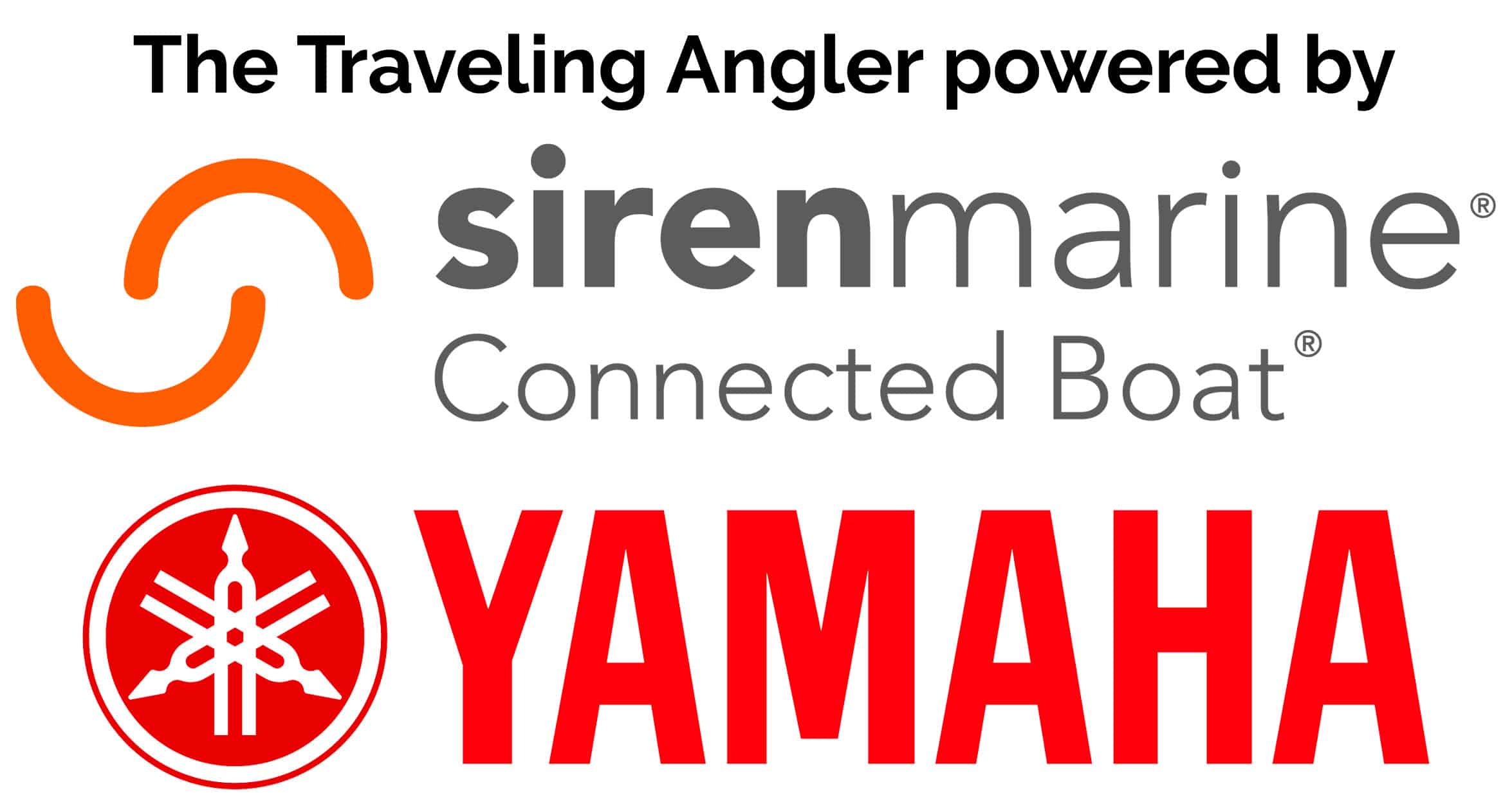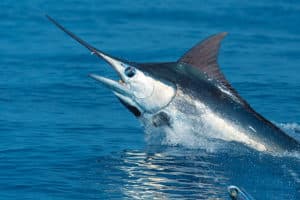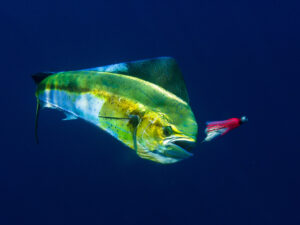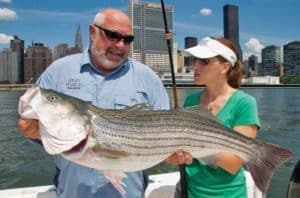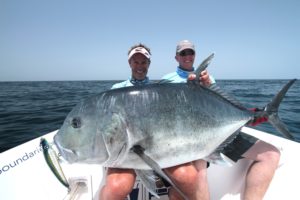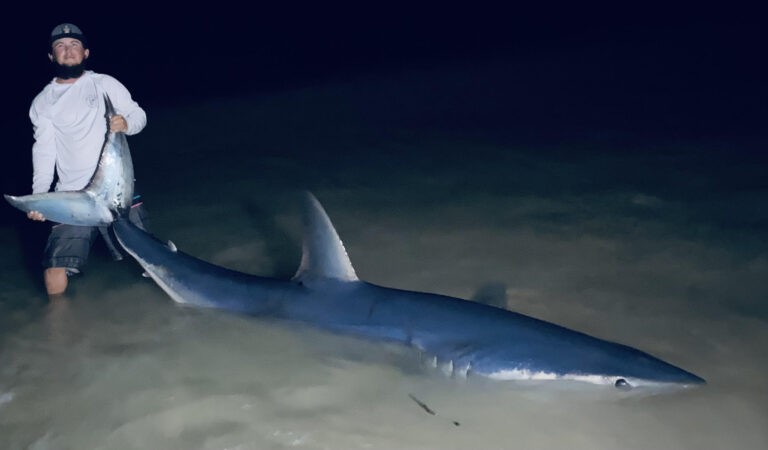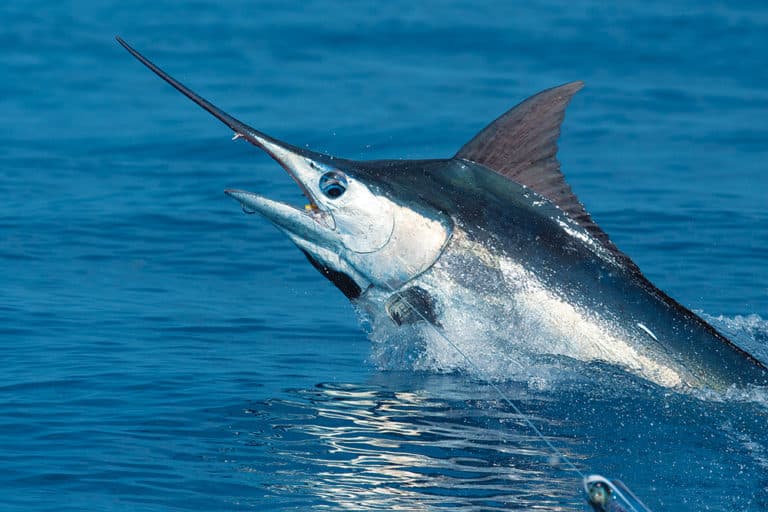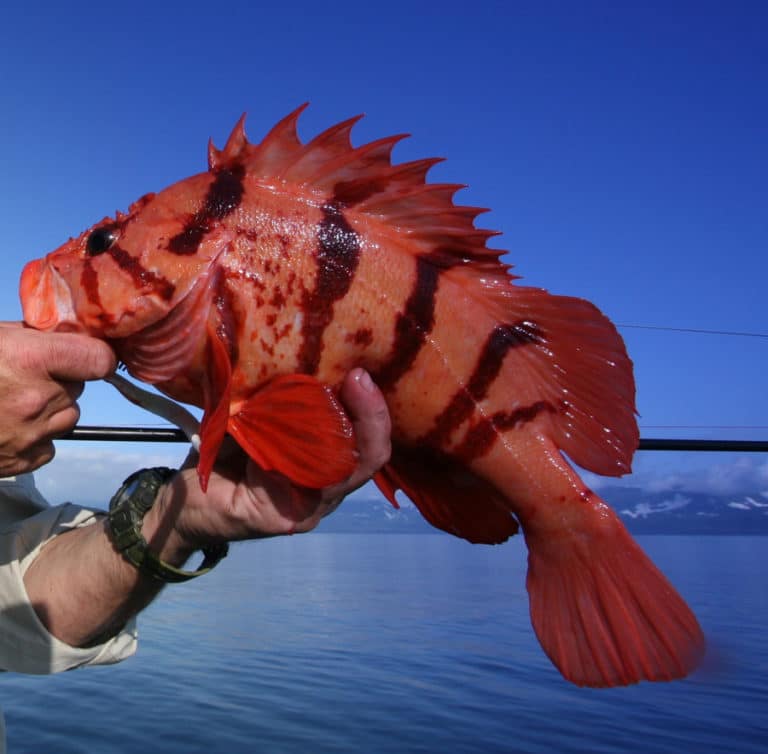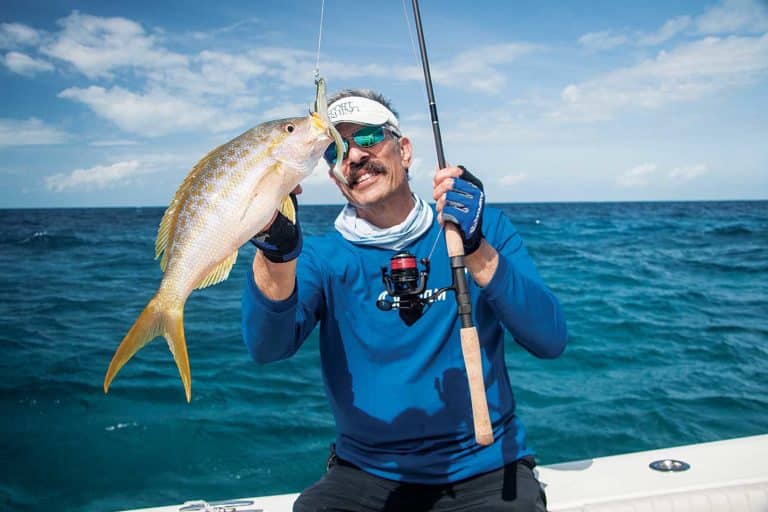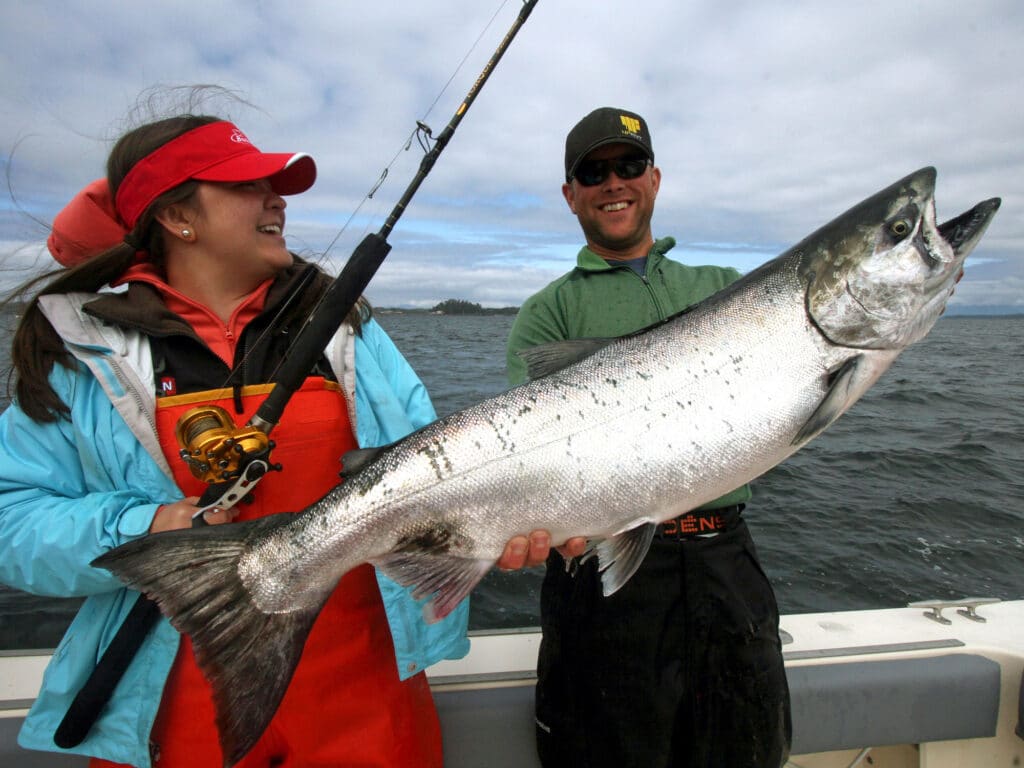
About 100 miles southwest of Juneau in southeast Alaska (the state’s Panhandle), Sitka sits at the edge of the north Pacific on Baranof Island. To the north and east, the rugged islands and mountains are all Tongass National Forest and Wilderness Area. The island remained part of Russia until 1867. Signs of that are still in evidence, such as St. Michael’s Russian Orthodox Cathedral.
A major port for commercial fishing, Sitka is also a center for tourism and, with a considerable fleet of charter operations, sport fishing. Salmon are the main draw; while it’s possible to catch five species of salmon here, Chinook (king) and coho (silver) are the primary targets, along with halibut and other bottom fish.
While there are no roads in or out of Sitka, 14 miles of local roads offer many spots to fish without a boat — lakes and streams for trout and grayling, and coastal areas for salmon (notably pinks) and trout (particularly Dolly Varden), but also with catches of king salmon, sea-run cutthroat and other species.
Along with Sitka’s great fishing, it’s reasonable to expect to observe or encounter a range of marine wildlife, including humpback whales, orcas, eagles, sea lions, bear, sea otters and more.

Planning a Trip
When to Go: With the climate less than appealing for visitors much of the year, mid-May through mid-September is the real tourist season in Sitka, when the population swells and things get quite busy.
For anglers, timing is significant. That is, those looking for trophy king salmon (30 to 40 pounds) will focus on June and July. Anglers hoping to get in on the main run of coho — smaller than kings but more numerous and wild battlers on lighter lines — will book in July, August and September. Mid to late summer also gives enthusiasts shots at sockeye, chum and pink salmon. Halibut can be taken throughout the summer, along with many species of rockfishes. Lingcod may be kept only mid-May through mid-June and again mid-August through November.
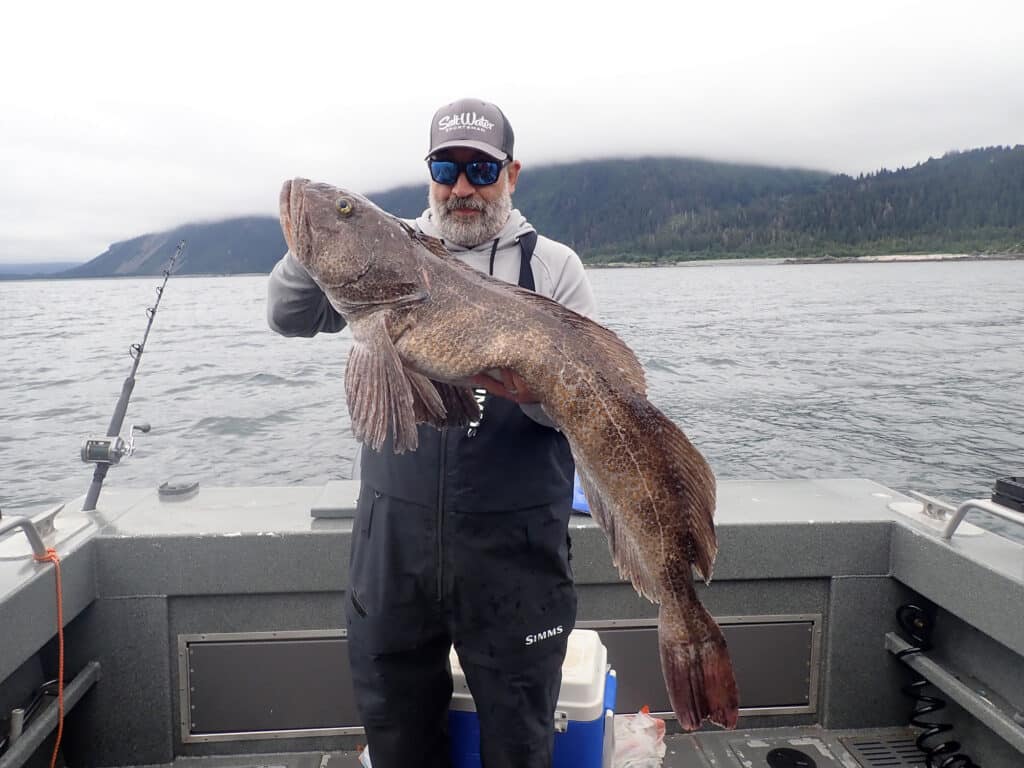
Where to Go and How to Get There: Although boating to Sitka is possible, the vast majority of visitors fly in with regular air service from Seattle on Alaska and, seasonally, flights on Delta as well.
You’ll find a number of hotels in Sitka, with an online search, along with some resorts that cater particularly to sport fishermen. But the number is limited and with such a short season, competition for bookings is fierce. If you can commit nine to 12 months ahead on a reservation, the chances of getting your first choice should be pretty fair.
One of the first places you should consider is Kingfisher Charters and Lodge. The lodge provides comfortable accommodations right on Sitka Sound. Their charter fishing specializes in salmon (kings and silvers), halibut, lingcod and rockfish. Windy or not, they have a trip planned and species to target. If you’re looking for a new species to catch, consider the tasty sablefish — Sitka is one of the few places in the U.S. where it’s not too hard to catch one.
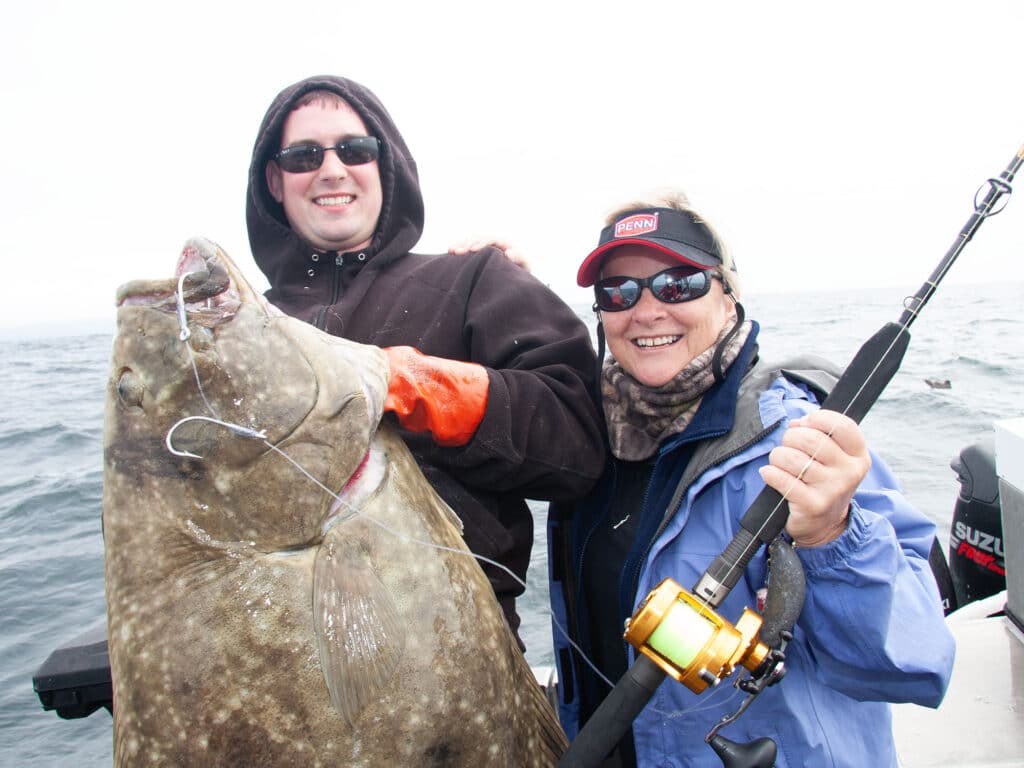
What to Expect: Granted, mid-summer days may be sunny and hit 70 degrees, but for the most part, expect cooler and gray days, with rain seldom out of the picture (even May through July, when precipitation is the least). When heading out on the water, two essentials: foul weather gear and, to adjust to ephemeral conditions, layers. And good rubber deck boots will serve you well.
While quite a few charter/guide boats operate in Sitka, once again, advance booking is wise. Most charter boats have dry, heated cabins from which anglers have the option to watch downrigger rods in the cockpit in inclement weather. It’s also possible to rent boats — such as a 21-foot aluminum Hewescraft Pacific Cruiser — for self-guided fishing.
While in states like Florida, anglers are off the hook (so to speak) for licenses if fishing with a licensed skipper, in Alaska any angler over 16 must have a license when fishing. You can buy a license or explore the options.
More adventurous (and financially flush) enthusiasts can book a floatplane to fly to lakes and rivers for char, steelhead and trout. Besides fishing, visitors can hike through forests and to glaciers; many wilderness trailheads are accessible from downtown Sitka. There’s also bicycling, sea kayaking, “flight seeing,” hunting and more. Also consider a taxi (or a tour) to reach the Fortress of the Bear, a unique and fascinating facility, as well as the Alaska Raptor Center.

